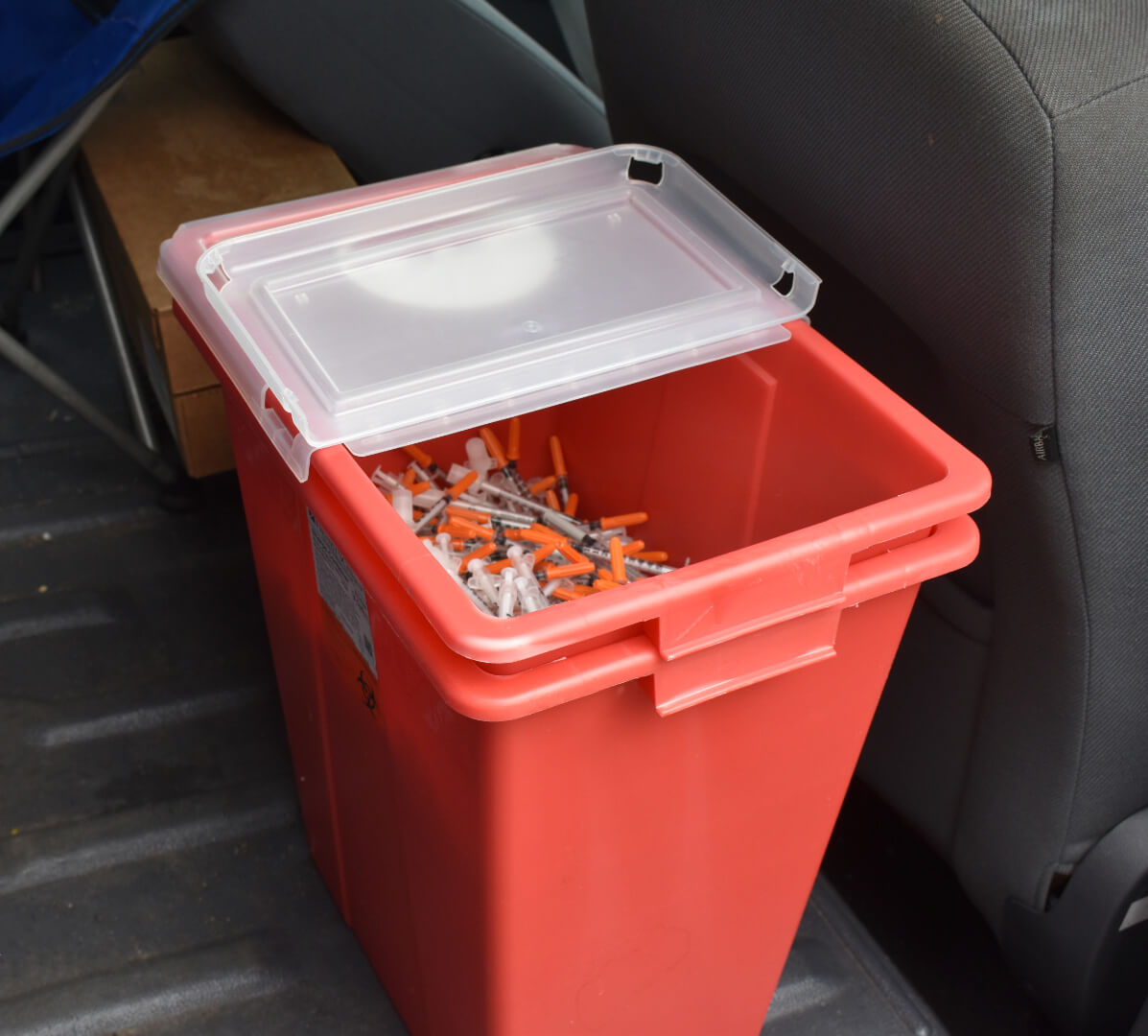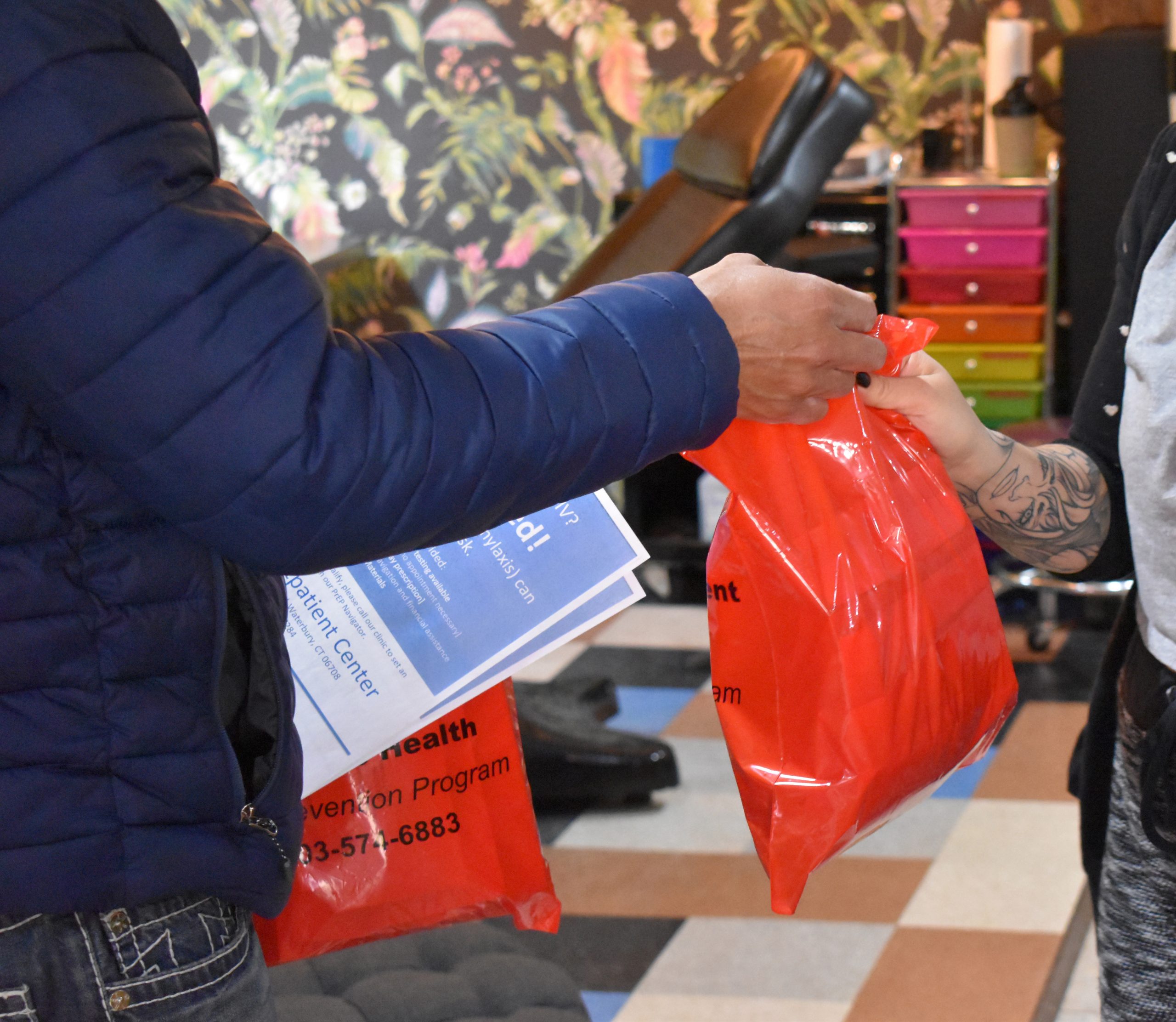Less than 10% of all new HIV infections occur among Persons Who Inject Drugs (PWIDs) (CDC Fact Sheet). Since the 1980s, SSPs in conjunction with other HIV prevention strategies have resulted in reductions of up to 80% in HIV incidence among PWID. Refer to the Provider Toolkit for up to date stats and facts. Syringe Services Programs (SSPs) provide a safe, effective method for people who inject drugs (PWID) to exchange used syringes and needles for sterile ones, lowering the risk of HIV and HCV transmission.
Connecticut’s SSPs are community-based programs that provide a wide array of Drug User Health Services including:
- Education on safer injection practices and wound care,
- Access to sterile needles and syringes,
- Safe disposal of used syringes,
- Education on overdose prevention,
- Access to Naloxone and Fentanyl Test Strips,
- Screening for HIV, STD, and Viral Hepatitis,
- Linkages to care and treatment for HIV, STD, and Viral Hepatitis
- Vaccinations for Hepatitis B and C,
- Linkages to substance use disorder treatment programs, and
- Referrals to social, mental health, and other medical services. (CDC SSPs).
Learn more about overdose prevention resources through the National Harm Reduction Coalition

